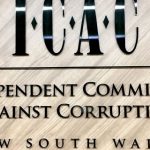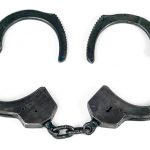Watchdogs Under Fire for Accepting Gifts

The Australian Investment and Securities Commission (ASIC) and Australian Competition and Consumer Commission (ACCC) are under fire for failing to declare gifts from the businesses they’re supposed to be regulating.
ASIC is an Australian government body that is empowered to act as our nation’s corporate regulator. Its primary role is to enforce and regulate company and financial services laws with a view to protecting consumers, investors and creditors, and upholding the integrity of the system.
ACCC is a federal authority responsible for enforcing the Competition and Consumer Act 2010 as well as additional legislation, which is designed to promote healthy competition and fair trading for the benefit of all Australians.
Both are meant to be independent from both government and business, and are supposed to ensure that any corporations and other businesses that operate outside the law are made responsible for their actions.
Undeclared gifts
However, that independence has been called into question by reports that senior staff within both bodies have accepted gifts and free dinners from the very companies are empowered to regulate, but have not been required to publicly disclose the gifts or any potential conflict of interest.
ASIC has long been criticised for not having the ‘teeth’ to deal with issues in the finance and banking industries, some of which came to light during last year’s Royal Commission into Finance and Banking.
As recounts from the hearings became public, the Federal Government announced proposals to increase the powers of the organisation and introduce tough new laws against corporate crime.
Information recently obtained through the Freedom of Information Act reveals that in recent years, ASIC has been the recipient of champagne and vintage wines, expensive dinners, concert tickets, airline upgrades and customised “training seminars” supplied by stockbrokers, banks, law firms and industry lobby groups.
In 2017, for example, investment bank Macquarie Group wined and dined ASIC staff at an upmarket bar in Sydney at the same time it was the subject of multiple investigations by the body, and had been ordered to pay former clients tens of millions of dollars in compensation.
Both the ASIC and the ACCC are required to keep a record of the gifts and hospitality they receive, but there is no requirement for them to publish or make them available to the public – which means public oversight is difficult.
Pressure to come clean
As a result of the Royal Commission, both ASIC and the ACCC are likely to come under more pressure to come clean about these kinds of activities.
Fraternising with, or accepting expensive gifts from, the businesses they are set up to monitor raises questions about independence and influence, and can adversely affect the public’s faith in the regulators.
It is hoped the concerns will lead to greater scrutiny and transparency, in order to promote the independence of the watchdogs and ensure corporate gifts are not kept hidden.
Political donations
Earlier this year, a raft of new laws were introduced in Australia, including reforms to donations to politicians.
From 1 January this year, politicians are no longer allowed to receive donations of $1,000 or more from foreign donors.
The amendments were described as the most “significant change to funding and disclosure in some time”.
The laws also prohibit foreign governments and state-owned enterprises from making gifts of $100 or more to political parties and campaigners if the money is to be used for electoral purposes.
The rationale behind the reforms is to stop the potential threat of foreign entities ‘influencing’ our politicians through generous donations.
Many believe the same rationale should be applied to our corporate regulators by imposing boundaries on the gifts that can be received or, at least, compelling public disclosure.








